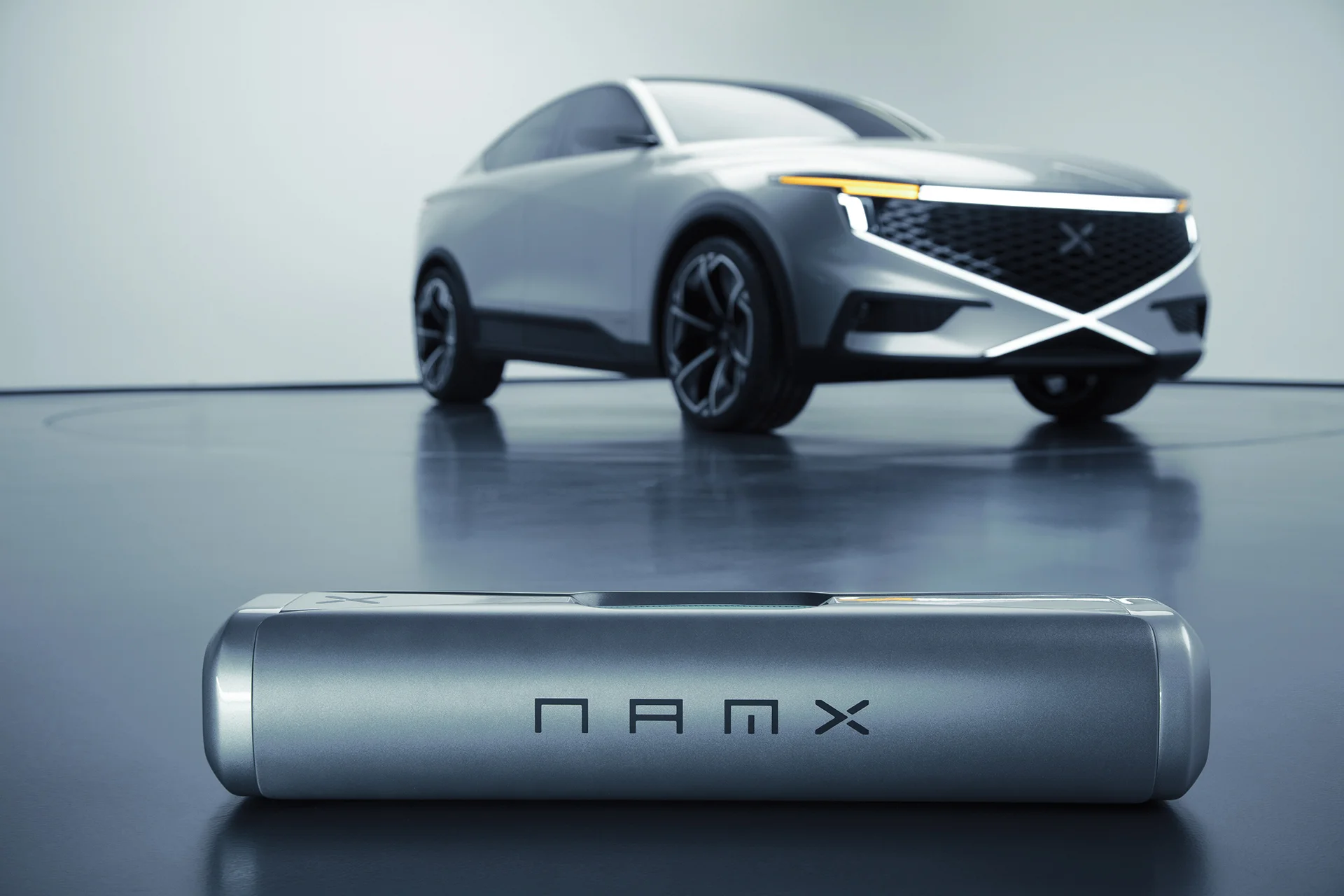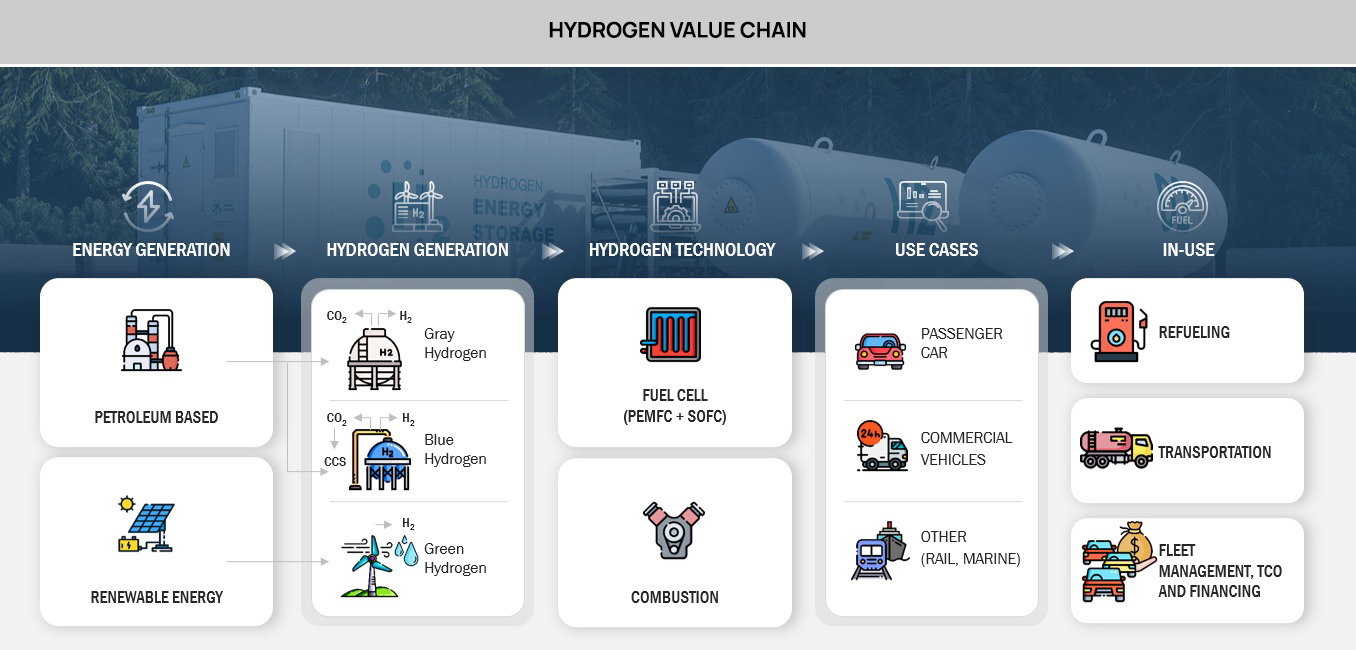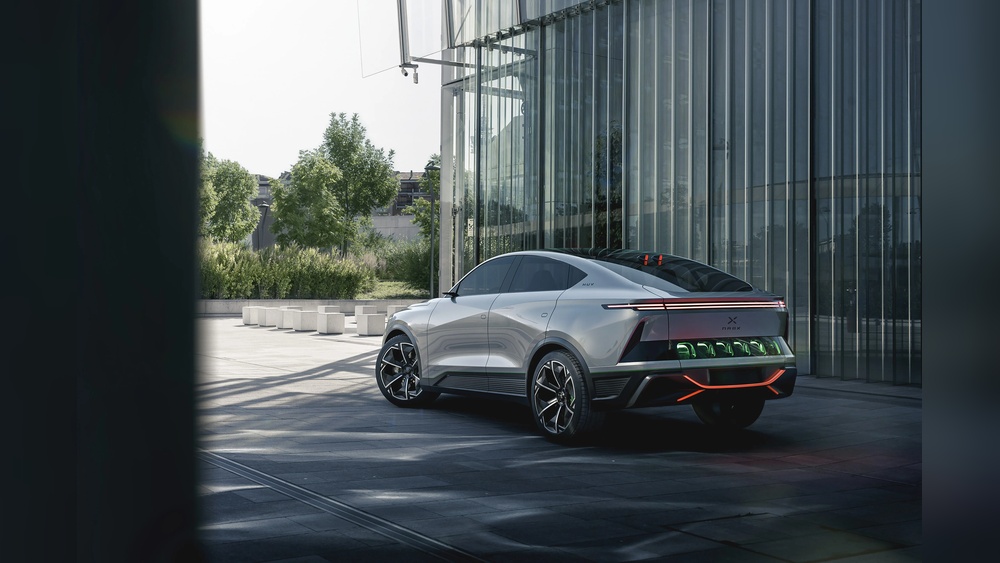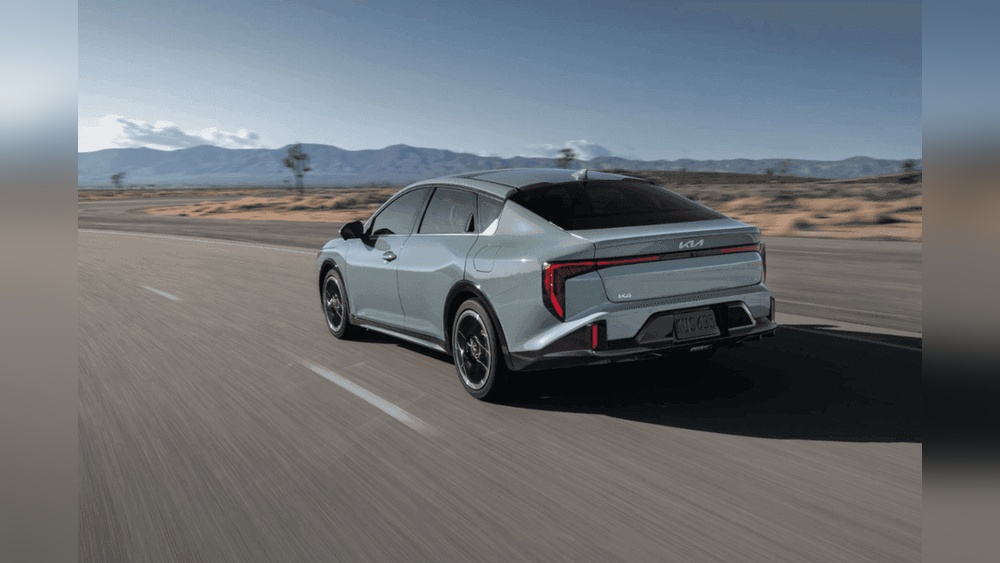If you’re considering a new SUV that’s eco-friendly but still powerful and practical, hydrogen SUVs might catch your attention. But with limited options and varying prices, how do you find the best value hydrogen SUV for your needs?
You want a vehicle that not only saves on emissions but also fits your budget and lifestyle without constant worries about refueling or maintenance. You’ll discover the top hydrogen SUVs that balance cost, performance, and convenience—helping you make a smart choice for your next ride.
Keep reading to find out which models stand out and why they could be the perfect fit for you.
Affordable Hydrogen Suvs
Affordable hydrogen SUVs offer a new way to drive green without breaking the bank. These vehicles combine clean technology with practical design. They provide a smooth ride, decent range, and low emissions. For many, they represent a smart choice for daily travel and family needs.
Hydrogen SUVs are becoming more accessible as technology improves and prices drop. Consumers can now find models that balance cost, features, and performance. This section highlights the top affordable hydrogen SUVs for 2025, compares their prices, and outlines the value-packed features they offer.
Top Models For 2025
The Hyundai NEXO remains a popular choice due to its reliable fuel cell technology and modern design. Toyota’s new Mirai SUV model brings advanced safety features and longer range at a competitive price. Honda is preparing to reintroduce a compact hydrogen SUV, focusing on affordability and efficiency. These models lead the market in combining price and performance.
Price Comparisons
The Hyundai NEXO starts around $60,000, making it one of the most affordable hydrogen SUVs. Toyota Mirai’s SUV model is priced slightly higher, near $65,000. Honda’s upcoming model aims to enter the market below $55,000, targeting budget-conscious buyers. These prices reflect improvements in fuel cell technology and production scale.
Value Features
Affordable hydrogen SUVs include features like fast refueling times of 3-5 minutes. They offer ranges of 300-400 miles, suitable for daily driving and longer trips. Safety systems like lane assist and collision warning come standard. Many models feature spacious interiors and advanced infotainment systems, enhancing comfort and convenience.
Eco-friendly Benefits
Hydrogen SUVs offer several eco-friendly benefits that help reduce pollution. They provide a cleaner alternative to traditional gasoline vehicles. These SUVs run on hydrogen fuel cells, which produce no harmful gases. Choosing a hydrogen SUV supports a greener future and healthier air quality.
Below are key eco-friendly advantages of hydrogen SUVs that make them an excellent choice for environmentally conscious drivers.
Zero Emission Advantages
Hydrogen SUVs emit only water vapor as exhaust. They produce zero carbon dioxide and no toxic gases. This means they do not contribute to smog or climate change. Driving a hydrogen SUV helps lower overall air pollution in cities. It is a big step toward cleaner transportation.
Renewable Energy Use
Many hydrogen vehicles use fuel made from renewable energy sources. Electrolysis powered by solar or wind energy produces clean hydrogen. This process reduces dependence on fossil fuels. Using renewable energy for hydrogen fuel supports sustainable energy growth. It lowers the carbon footprint of driving.
Environmental Impact
Hydrogen SUVs have a smaller environmental impact than gasoline cars. They reduce greenhouse gas emissions and harmful pollutants. Their quiet engines also help decrease noise pollution. Manufacturing improvements are making hydrogen vehicles greener to produce. Overall, they help protect natural resources and ecosystems.
Fueling Infrastructure
Fueling infrastructure plays a crucial role in the adoption of hydrogen SUVs. Without accessible stations and affordable fuel, drivers face challenges on the road. Understanding the current state and future plans helps buyers make informed choices. This section covers key aspects of hydrogen fueling infrastructure to guide you.
Refueling Station Availability
The number of hydrogen refueling stations remains limited. Most stations are concentrated in specific regions, such as California in the U.S. This limits the range for hydrogen SUV drivers. Many cities and rural areas lack stations entirely. Convenience depends greatly on station locations. Planning trips requires careful mapping of available stations. Growth in station numbers is slow but steady.
Cost Of Hydrogen Fuel
Hydrogen fuel costs more than gasoline or electric charging. Prices vary by region and station operator. Production and transport costs add to the price at the pump. Some stations offer discounts or memberships to reduce costs. Despite higher prices, hydrogen fuel can be competitive over time. The cost reflects the current state of the technology and supply chain.
Expansion Plans
Governments and companies plan to expand hydrogen refueling networks. New stations are in development across the U.S., Europe, and Asia. Funding and incentives support this growth. Automakers collaborate with energy providers to build infrastructure. Expansion aims to reduce range anxiety and boost sales. Wider networks will make hydrogen SUVs more practical and attractive.
Performance And Range
Hydrogen SUVs offer a unique mix of power and efficiency. Their performance and range stand out among eco-friendly vehicles. These vehicles deliver smooth rides and long distances without frequent stops. Understanding how they perform and how far they can go helps buyers make smart choices.
Driving Experience
Hydrogen SUVs provide instant torque for quick acceleration. The ride is quiet due to their electric motors. Handling is smooth and stable, ideal for city and highway driving. Drivers enjoy responsive steering and comfortable seats. The absence of engine noise adds to a peaceful drive.
Mileage Per Tank
A full hydrogen tank can cover between 300 to 400 miles. This range rivals many gasoline SUVs. It reduces the need for frequent refueling on long trips. The large fuel tanks are designed for efficiency and safety. This mileage suits daily commutes and weekend adventures alike.
Charging Times
Refueling a hydrogen SUV takes about 3 to 5 minutes. This is much faster than electric vehicle charging. Stations pump hydrogen quickly under high pressure. Fast refueling makes hydrogen SUVs convenient for busy schedules. The quick turnaround helps drivers stay on the road longer.
Safety Features
Safety is a top priority for hydrogen SUVs. These vehicles use advanced systems to protect passengers and the car itself. Understanding their safety features helps buyers feel confident about this new technology.
Hydrogen Storage Technology
Hydrogen SUVs store fuel in strong, high-pressure tanks. These tanks use special materials that resist damage. They are designed to handle impacts and extreme conditions without leaking. The storage systems include multiple layers to prevent hydrogen escape. Sensors monitor the tanks constantly to detect any issues early.
Flammability Risks
Hydrogen is highly flammable, so safety measures reduce risks. Vehicles have automatic shut-off valves to stop hydrogen flow if a leak occurs. The fuel system is sealed tightly to prevent leaks. In case of fire, hydrogen quickly disperses, lowering explosion chances. Engineers design SUVs to keep hydrogen away from hot engine parts.
Safety Regulations
Hydrogen SUVs must follow strict safety rules worldwide. Governments require extensive crash tests and leak checks. Manufacturers comply with standards from agencies like the National Highway Traffic Safety Administration (NHTSA). These rules ensure hydrogen vehicles meet or exceed safety levels of gasoline cars. Continuous updates to regulations improve safety as technology advances.

Credit: www.namx-hydrogen.com
Cost Factors
Understanding the cost factors of hydrogen SUVs helps buyers make smart decisions. These vehicles offer clean energy but come with unique expenses. Knowing these costs lets you compare models and plan your budget.
Initial Purchase Price
Hydrogen SUVs often cost more than traditional cars. The technology is new and still developing. Manufacturing fuel cells and hydrogen tanks adds to the price. Prices vary by brand and model but expect to pay a premium over gasoline SUVs.
Maintenance Expenses
Maintenance for hydrogen SUVs can be lower than gasoline cars. They have fewer moving parts in the engine. However, specialized parts and service may cost more. Fewer mechanics know how to repair hydrogen vehicles, which can increase labor costs.
Fuel Efficiency Costs
Hydrogen fuel prices are higher than gasoline or electricity. Fueling stations are rare, affecting convenience and price. Still, hydrogen SUVs offer good mileage per kilogram of fuel. Efficient models reduce total fuel expenses over time.
Technology And Innovation
Hydrogen SUVs showcase impressive technology and innovation. These vehicles combine clean energy with advanced engineering. They offer a glimpse into the future of transportation. Understanding the technology behind these SUVs helps buyers appreciate their value.
Innovations in hydrogen fuel cells and hybrid systems improve efficiency and performance. Automakers continue to develop new features to enhance driving range and reduce emissions. The next wave of advancements promises even greater benefits.
Fuel Cell Advances
Fuel cells convert hydrogen gas into electricity to power the vehicle. Recent advances have made fuel cells smaller and more efficient. This means longer driving ranges and faster refueling times. Improved durability also reduces maintenance costs. These upgrades help hydrogen SUVs compete with electric and gasoline models.
Hybrid Systems
Some hydrogen SUVs use hybrid systems combining fuel cells with batteries. This setup captures energy during braking and stores it for later use. It boosts overall efficiency and smooths out power delivery. Hybrid systems extend range and reduce fuel consumption. They offer a practical solution during long trips or in areas with limited hydrogen stations.
Future Developments
Researchers are working on better hydrogen storage methods to increase safety and capacity. New materials promise lighter tanks and faster refueling. Automakers plan to improve fuel cell lifespan and lower production costs. Expanded refueling networks will make hydrogen SUVs more accessible. These developments will make hydrogen SUVs a stronger choice for eco-conscious drivers.

Credit: www.sciencedirect.com
Market Availability
Market availability plays a crucial role in choosing the best value hydrogen SUVs. Buyers need to consider where these vehicles are sold and how easy it is to access them. Availability affects not only purchase options but also maintenance and refueling convenience.
Regional Availability
Hydrogen SUVs are mostly available in select regions. California leads in the United States, offering several refueling stations. Some parts of Europe and Asia also have growing markets. Outside these areas, hydrogen vehicles remain rare due to limited infrastructure.
Regions with government support show better availability. Incentives and policies help increase sales and station development. Potential buyers should check local markets before deciding on a hydrogen SUV.
Dealer Networks
Authorized dealers for hydrogen SUVs are fewer than traditional cars. Major brands like Toyota and Hyundai have established networks in key areas. These dealers provide expert advice and proper vehicle servicing. Buyers should confirm dealer presence nearby for easier access to repairs and updates.
Smaller dealer networks can limit test drive opportunities. They may also affect pricing and availability of spare parts. Choosing a well-supported brand ensures smoother ownership experience.
Warranty And Support
Warranty coverage for hydrogen SUVs usually matches that of other new vehicles. Manufacturers offer protection for fuel cell systems and key components. Some warranties last up to 8 years or 100,000 miles. This helps reduce concerns about costly repairs.
Support services include roadside assistance and software updates. Good warranty terms add confidence for first-time hydrogen vehicle buyers. It is important to review warranty details before purchase.
Pros And Cons
Choosing the best value hydrogen SUVs involves weighing their pros and cons carefully. These vehicles offer unique benefits but come with certain drawbacks. Understanding these points helps buyers make informed decisions.
Advantages Over Electric Vehicles
Hydrogen SUVs refuel much faster than electric cars. Filling up takes just a few minutes. They also provide longer driving ranges on a single tank. Cold weather affects hydrogen SUVs less, maintaining performance. These vehicles produce only water vapor as emissions. Their lightweight fuel tanks allow more cargo space. Hydrogen models suit drivers needing quick refills and long trips.
Common Challenges
Hydrogen SUVs face limited refueling stations in most areas. Building hydrogen stations costs much more than electric chargers. Hydrogen production uses a lot of energy, sometimes from fossil fuels. Storing hydrogen safely requires high pressure, raising safety concerns. Overall energy efficiency is lower compared to battery electric vehicles. These challenges slow widespread adoption and raise costs.
Consumer Feedback
Owners praise hydrogen SUVs for smooth driving and fast refueling. Many appreciate the quiet and clean ride. Some report difficulty finding nearby refueling stations. Maintenance costs appear reasonable but vary by model. A few consumers note concerns about hydrogen safety, though incidents are rare. Overall satisfaction depends on lifestyle and access to infrastructure.

Credit: www.marketsandmarkets.com
Frequently Asked Questions
What Is The Cheapest Hydrogen-powered Car?
The cheapest hydrogen-powered car is the Toyota Mirai. It offers affordability, reliability, and wide availability in hydrogen vehicles.
What Is The Best Hydrogen Car To Buy?
The best hydrogen car to buy is the Toyota Mirai for its reliability and availability. The Hyundai Nexo offers advanced features and range. Both provide efficient hydrogen fuel cell technology and practical daily use.
Is There A Downside To Hydrogen Cars?
Hydrogen cars face high costs, limited refueling stations, energy-intensive hydrogen production, storage challenges, and safety concerns due to flammability.
What Are The Common Problems With Mirai?
Common Mirai problems include high purchase costs, limited refueling stations, energy-intensive hydrogen production, storage challenges, and safety concerns due to hydrogen’s flammability. Complex fuel cell technology may lead to reliability issues and expensive repairs.
Conclusion
Choosing the best value hydrogen SUV means balancing costs, range, and availability. These vehicles offer clean driving with quick refueling. Keep in mind, hydrogen stations are still rare in many areas. Prices may be higher than traditional SUVs. Still, hydrogen SUVs represent a step toward greener transportation.
Consider your driving needs and local infrastructure before deciding. This way, you get the most benefit from your investment. Hydrogen SUVs could become more common as technology and networks improve. For now, they suit drivers eager to explore new fuel options.

